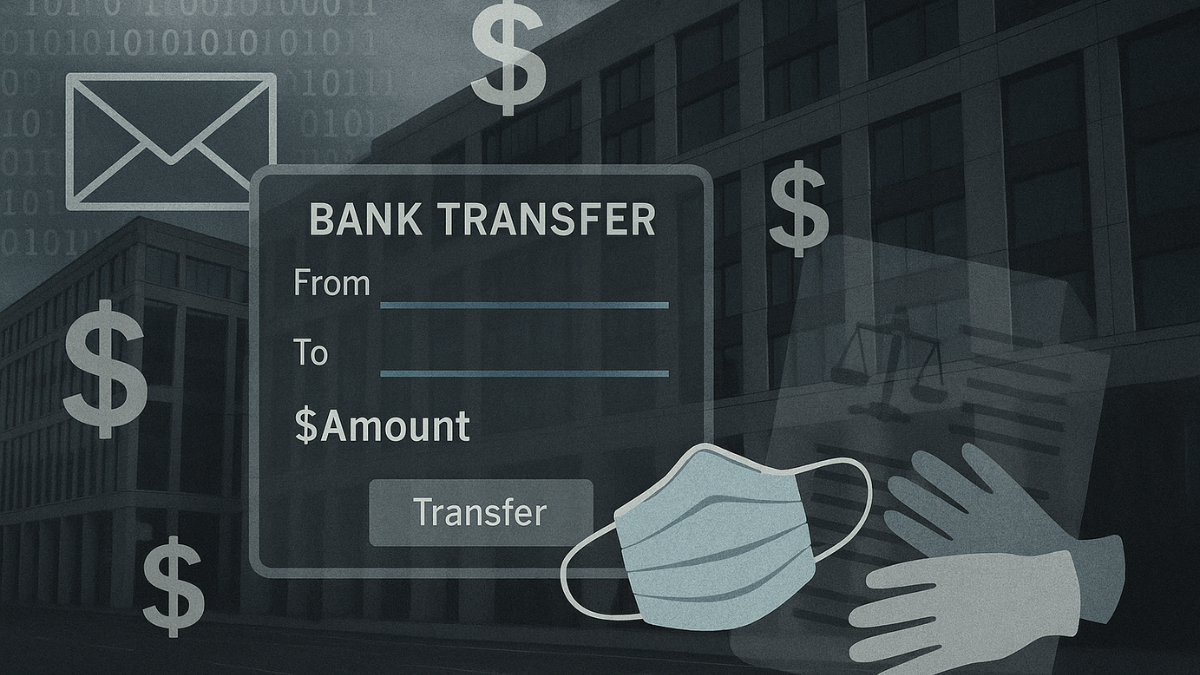A Columbus man, Benjamin O. Alexander is facing serious federal charges after investigators uncovered a scheme involving over $1 million in stolen funds tied to the COVID-19 pandemic. The money was allegedly funneled through a fake business account using fraudulent emails and then carefully hidden through a series of financial transactions.
Benjamin O. Alexander Allegedly Used Fake Business to Steal Over $1 Million
A federal grand jury has indicted Benjamin O. Alexander, 42, of Columbus, on 29 counts of money laundering. Authorities say the charges stem from a scam that tricked a healthcare provider into sending more than $1 million to a fraudulent bank account during the early months of the COVID-19 pandemic.
Alexander is accused of setting up a business called BOA Building Maintenance and Cleaning Services LLC in April 2019. According to the indictment, this company was used as a front to collect stolen money.
In June 2020, workers at the healthcare provider received fake emails. These messages appeared to be from a known vendor supplying personal protective equipment (PPE). The emails instructed the workers to send payments to a “new” bank account. However, that account was controlled by Alexander.
???? Spokane’s Berg Busted: $3.3M Payout in Explosive Military Contract Fraud Scheme
Following the instructions in the email, the healthcare provider made four electronic transfers totaling approximately $1.1 million into Alexander’s account. At the time, the organization believed it was paying for legitimate PPE orders.
How the Money Was Allegedly Hidden
Once the funds were in his control, Alexander allegedly began moving the money through various accounts and transactions. This process, known as money laundering, is used to disguise where illegal money really comes from.
The indictment claims Alexander made multiple financial moves to make the money harder to trace. These actions included spreading the funds across other accounts and transactions designed to conceal the origin of the stolen money.
Federal investigators from the Internal Revenue Service-Criminal Investigation (IRS-CI) unit played a major role in uncovering the scheme. Karen Wingerd, Special Agent in Charge at IRS-CI, was part of the team that led the investigation.
The charges were formally announced by Kelly A. Norris, Acting United States Attorney for the Southern District of Ohio. The case is being prosecuted by Assistant U.S. Attorney Peter K. Glenn-Applegate, who is representing the government.
Justice Department busts $16M hospice fraud — BMWs, fake IDs, and stolen care funds
Serious Legal Consequences
The legal stakes for Alexander are high. If convicted, he faces up to 20 years in prison for each count of conspiracy to commit money laundering and concealment money laundering. Additionally, charges involving monetary transactions with criminal proceeds carry a sentence of up to 10 years.
Officials emphasized that these charges are especially serious because they involve critical resources intended for use during a national public health emergency. PPE supplies were in high demand in 2020, and scams like this one diverted essential funds from where they were most needed.
Though he has been indicted, Alexander is presumed innocent unless proven guilty in a court of law.
The case shines a light on the growing threat of business email compromise schemes. These scams often involve fraudsters impersonating trusted vendors or partners to trick companies into sending money to the wrong accounts. During the COVID-19 pandemic, such scams became even more dangerous as organizations rushed to secure vital equipment.


